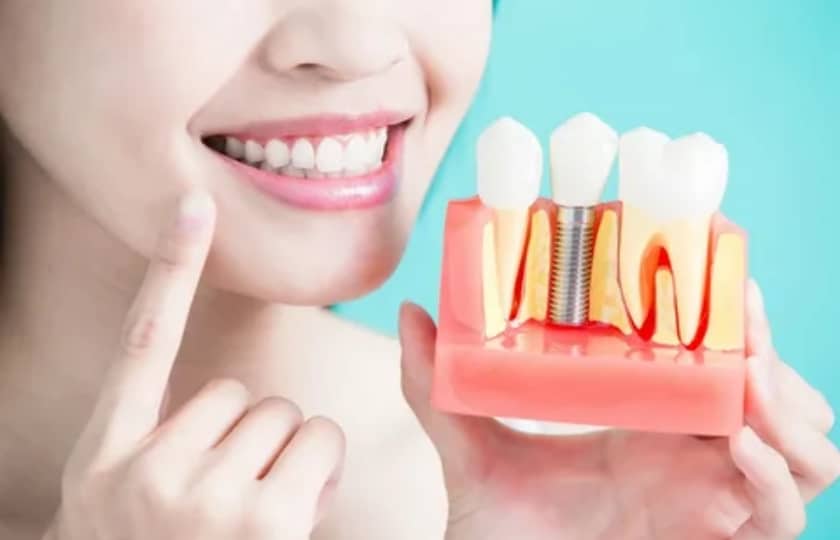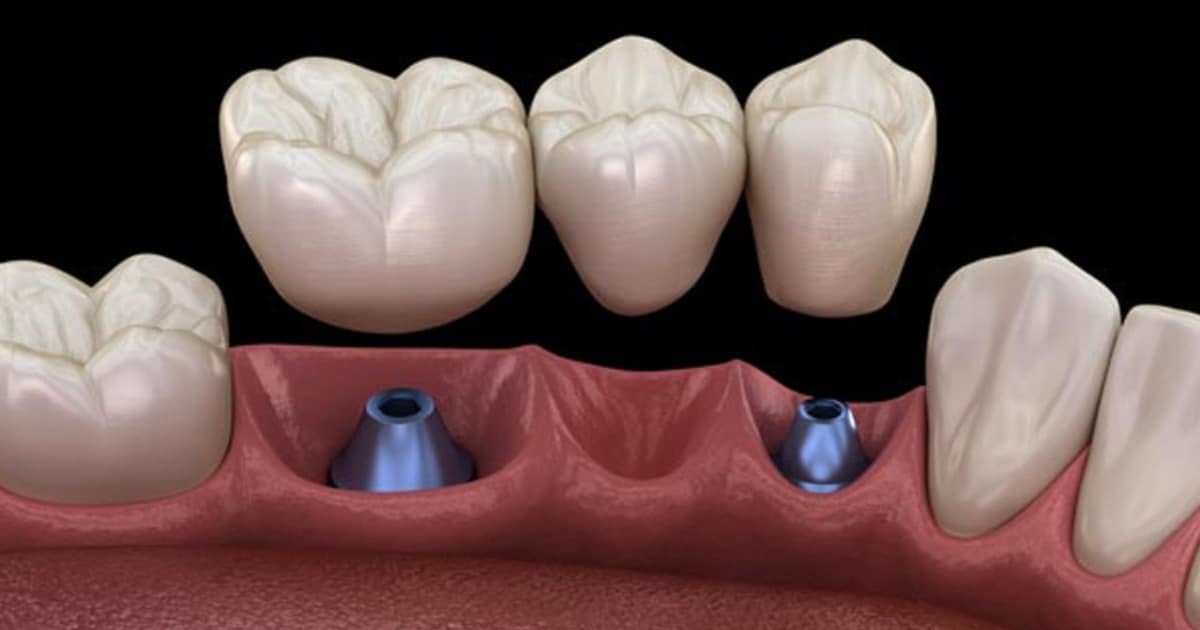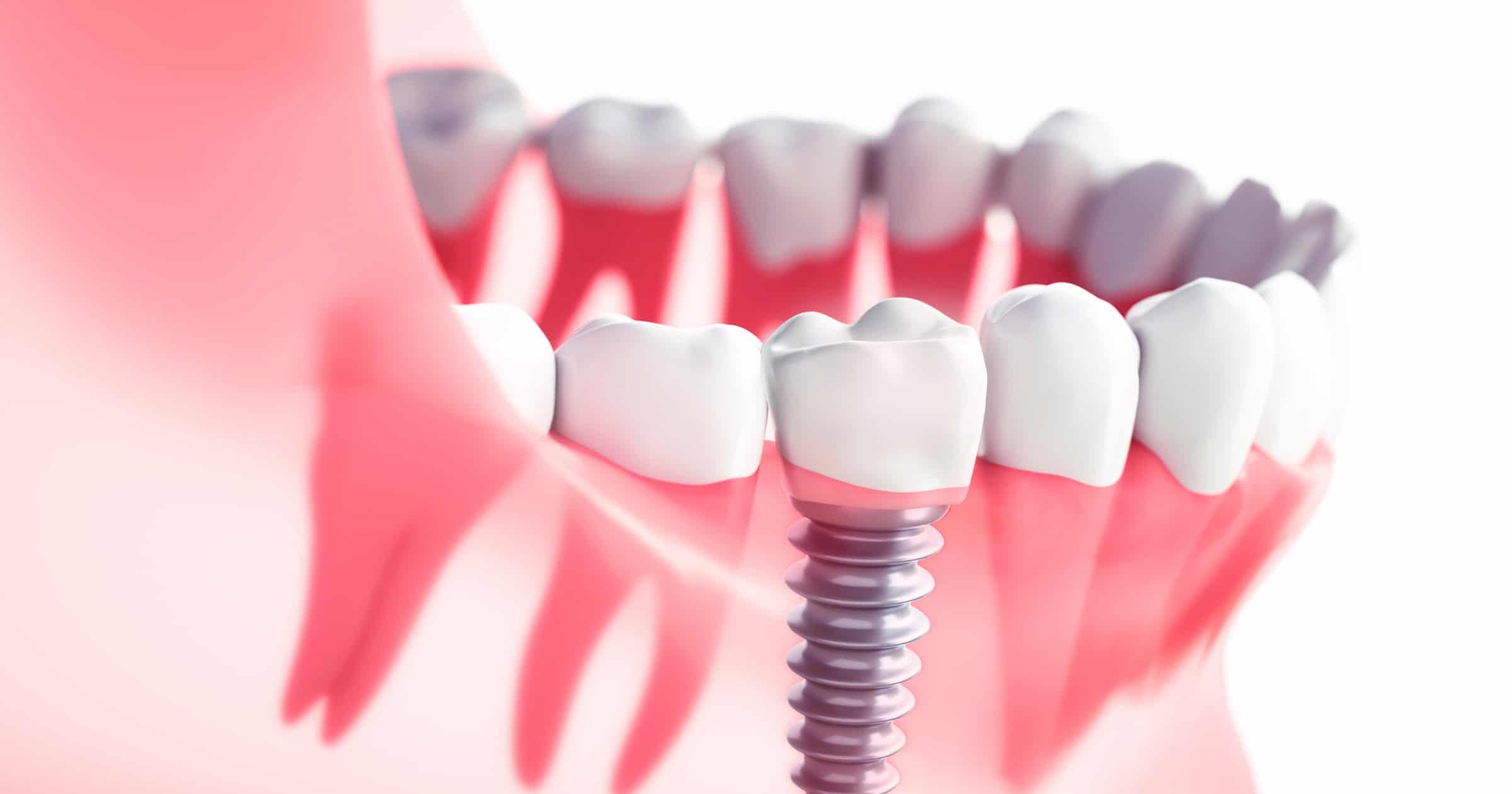
Welcome to our blog post on how to care for your dental implants! If you’ve recently undergone a dental implant procedure, congratulations! You’re on your way to enjoying a confident smile and improved oral health. But remember, just like natural teeth, dental implants require proper care and maintenance to ensure their longevity and effectiveness. In this article, we’ll provide you with valuable tips and tricks on how to keep your dental implants in top shape. So, let’s dive in and discover the secrets of maintaining a healthy and dazzling smile with dental implants!
What Are Dental Implants?
Dental implants are a revolutionary solution for replacing missing teeth. They are designed to function and look just like natural teeth, providing patients with a permanent and durable option for restoring their smiles.
Dental implants are made from biocompatible materials such as titanium and are surgically implanted into the jawbone as artificial tooth roots. During osseointegration, they fuse with the bone and become a solid foundation for attaching crowns or bridges.
One of the key benefits of dental implants is their ability to prevent bone loss in the jaw. When a tooth is lost, the underlying bone can deteriorate over time due to lack of stimulation. Placing an implant in the space stimulates the surrounding bone and helps maintain its density and strength.
Unlike other tooth replacement options like dentures or bridges, dental implants offer superior stability and functionality. With proper care, they can last a lifetime without needing frequent repairs or replacements.
Dental implants provide patients with renewed confidence in their smiles while preserving oral health by preventing further complications associated with missing teeth.

Benefits of Dental Implants
Dental implants have revolutionized the field of dentistry, providing patients with a long-lasting and natural-looking solution to missing teeth. Unlike dentures or bridges, dental implants are securely anchored into the jawbone, offering stability and comfort. One of the major benefits of dental implants is their ability to restore proper chewing function, allowing individuals to enjoy their favorite foods without restrictions.
Another advantage of dental implants is that they prevent bone loss in the jaw. When a tooth is lost, the surrounding bone can start to deteriorate over time. By placing an implant in the empty space, it stimulates new bone growth and helps maintain facial structure.
Furthermore, dental implants improve speech by eliminating any slurring or mumbling caused by missing teeth. They also enhance overall oral health as neighboring teeth remain intact since there is no need for altering them to support a bridge.
In addition to these functional benefits, dental implants offer aesthetic advantages too. They look and feel like natural teeth and seamlessly blend with your existing smile. With proper care and maintenance, they can last for many years – even a lifetime!
Types of Dental Implants
When it comes to dental implants, there are several different types available, each designed for specific needs and preferences. Let’s explore some of the most common types:
1. Endosteal Implants: These are the most popular type of dental implant and involve placing a titanium post directly into the jawbone. Once the surrounding tissue heals, a prosthetic tooth is attached to the implant.
2. Subperiosteal Implants: Subperiosteal implants are used when there isn’t enough healthy bone structure for an endosteal implant. Instead of being inserted into the jawbone, they are installed above or below the gum line.
3. All-on-4 Implants: As the name suggests, this option allows for an entire arch of teeth to be supported by just four strategically placed implants. It provides a cost-effective solution and reduces treatment time compared to traditional methods.
4. Mini Implants: These smaller diameter implants are ideal for patients with limited bone density or those who require less invasive procedures. They can be used as temporary solutions or support dentures securely.
5. Zygomatic Implants: Used in cases where traditional implants cannot be anchored due to severe bone loss in upper jaws.
Your dentist can help you determine which type might be best for you based on their unique advantages and considerations.
How to Care For Your Dental Implants
When it comes to caring for your dental implants, there are a few key tips and tricks that can help ensure their longevity and maintain your oral health. First and foremost, regular brushing and flossing are essential. Just like with natural teeth, plaque, and bacteria can accumulate on the surface of your dental implants if not properly cleaned. Use a soft-bristled toothbrush and non-abrasive toothpaste to gently brush around the implant area twice a day.
In addition to regular brushing, flossing is equally important in preventing gum disease or other complications around the implant site. Be sure to use floss specifically designed for dental implants or interdental brushes that can effectively clean between the implant crown and adjacent teeth.
Alongside good oral hygiene practices at home, it’s crucial to schedule routine check-ups with your dentist for professional cleanings and examinations. Your dentist will be able to assess the condition of your dental implants, identify any potential issues early on, and provide necessary treatments or recommendations.
Another tip for caring for your dental implants is being mindful of what you eat. While they are durable replacements for missing teeth, certain hard or sticky foods may pose a risk of damaging the prosthetic crown or implant itself. Avoid biting down on hard objects like ice cubes or using excessive force when chewing tough meats.
Quitting smoking is highly recommended, as tobacco use has been linked to increased risks of complications with dental implants, such as infections or implant failure.
Common Mistakes to Avoid
When it comes to caring for your dental implants, there are a few common mistakes that you should avoid. These mistakes can compromise the longevity and function of your implants, so it’s important to be aware of them.
One common mistake is neglecting oral hygiene. Just because dental implants are artificial doesn’t mean they don’t require proper cleaning. In fact, maintaining good oral hygiene habits is even more crucial with implants. Make sure to brush at least twice a day and floss daily to remove plaque and bacteria that can lead to gum disease.
Another mistake is using abrasive toothpaste or hard-bristled toothbrushes. While it’s important to clean your teeth thoroughly, using harsh products or aggressive brushing techniques can damage the implant crown or abutment. Opt for a soft-bristle toothbrush and non-abrasive toothpaste recommended by your dentist.
Tips for Optimizing Your Oral Hygiene
Maintaining good oral hygiene is crucial for the long-term success of your dental implants. Here are some tips to help you optimize your oral hygiene routine:
1. Brush Regularly: Brushing at least twice a day using a soft-bristled toothbrush and fluoride toothpaste is essential. Be gentle around the implant area, ensuring that you clean all surfaces of your teeth.
2. Floss Daily: Don’t forget to floss! Use dental floss or interdental brushes to clean between your teeth and around the implants. This helps remove plaque and food particles that can lead to gum disease.
3. Consider an Antibacterial Mouthwash: Using an antibacterial mouthwash can help reduce bacteria in your mouth, promoting healthier gums and preventing infection around the implant site.
4. Avoid Tobacco Products: Smoking or chewing tobacco can increase the risk of complications with dental implants, such as delayed healing or implant failure. Quitting these habits will benefit both your overall health and oral health.
5. Schedule Regular Dental Check-ups: Visit your dentist regularly for check-ups and professional cleaning sessions. These visits allow them to monitor the condition of your implants, detect any issues early on, and provide necessary treatments if needed.
6. Watch Your Diet: A healthy diet plays a significant role in maintaining optimal oral health. Avoid sugary foods and beverages as they can contribute to cavities and gum disease.
Remember, proper care for your dental implants goes beyond just regular brushing – it involves consistent maintenance practices combined with professional guidance from a skilled dentist in Pasadena who specializes in dental implants.
Caring for your dental implants is essential to ensure their longevity and maintain a healthy smile. By following the tips and tricks outlined in this article, you can optimize your oral hygiene routine and avoid common mistakes that may damage your implants.
Remember, dental implants are an investment in your oral health, so it’s crucial to take care of them properly. Regular brushing and flossing, along with regular visits to your dentist in Pasadena, will go a long way in preserving the integrity of your implants.
FAQs
Q: How long do dental implants last?
A: With proper care and maintenance, dental implants can last a lifetime. However, it’s important to note that individual factors such as oral hygiene habits and overall health can affect the longevity of dental implants.
Q: Is the placement of dental implants painful?
A: In most cases, dental implants are placed under local anesthesia, ensuring that you won’t feel any pain during the procedure. In the days following the procedure, some patients may experience mild discomfort or soreness, but over-the-counter pain medicines can help with this.
Q: Can I eat normally with dental implants?
A: Yes! Dental implants are designed to function just like natural teeth. Once they have fully healed and integrated with your jawbone, you can enjoy all your favorite foods without any restrictions. It’s important to maintain good oral hygiene practices to ensure the long-term success of your dental implant restoration.
Q: Are there any risks or complications associated with dental implant surgery?
A: Like any surgical procedure, there are potential risks and complications involved with dental implant surgery. These include infection at the implant site, damage to surrounding structures such as nerves or blood vessels, and failure of osseointegration (the fusion between implant and bone). However, these complications are rare when the procedure is performed by an experienced dentist using proper techniques.
Q: Can I get a single tooth replaced with a dental implant?
A: Absolutely! Dental implants are versatile and can be used to replace one missing tooth or multiple missing teeth. Whether you need a single-tooth replacement or a full mouth reconstruction, your dentist will customize a treatment plan based on your specific needs.


